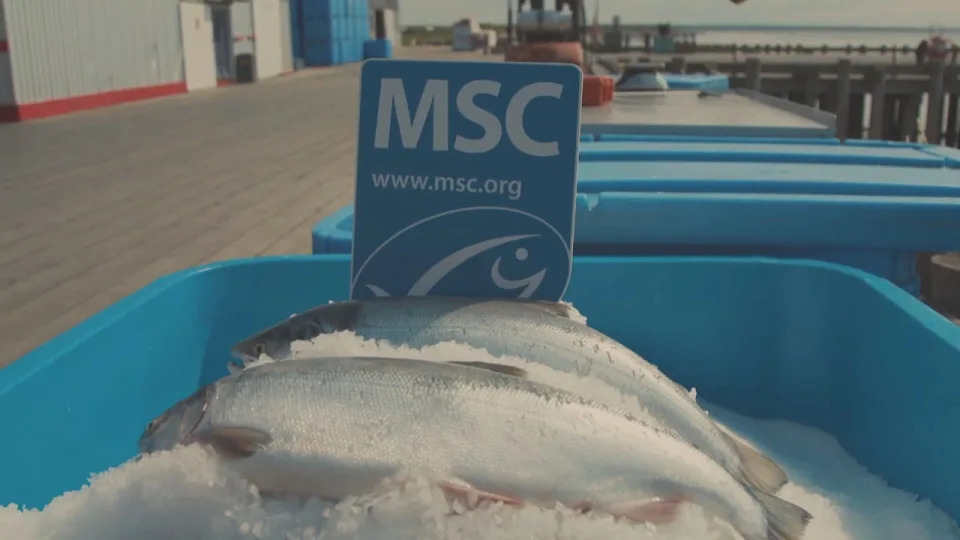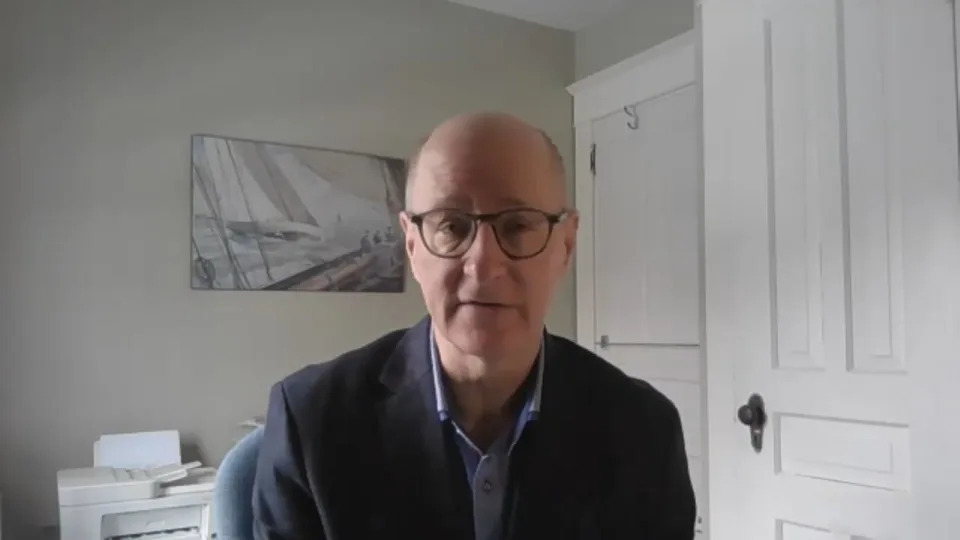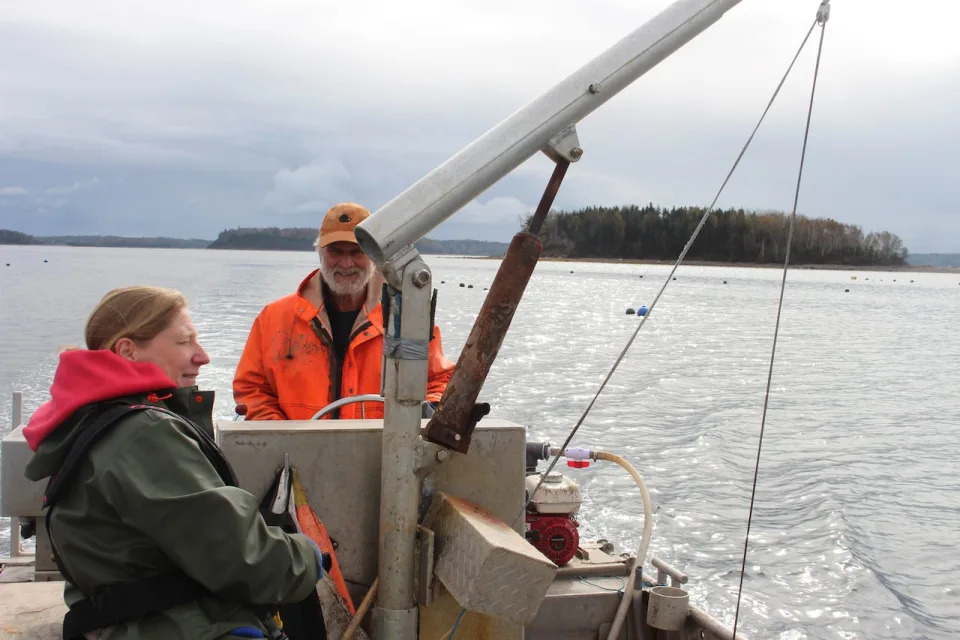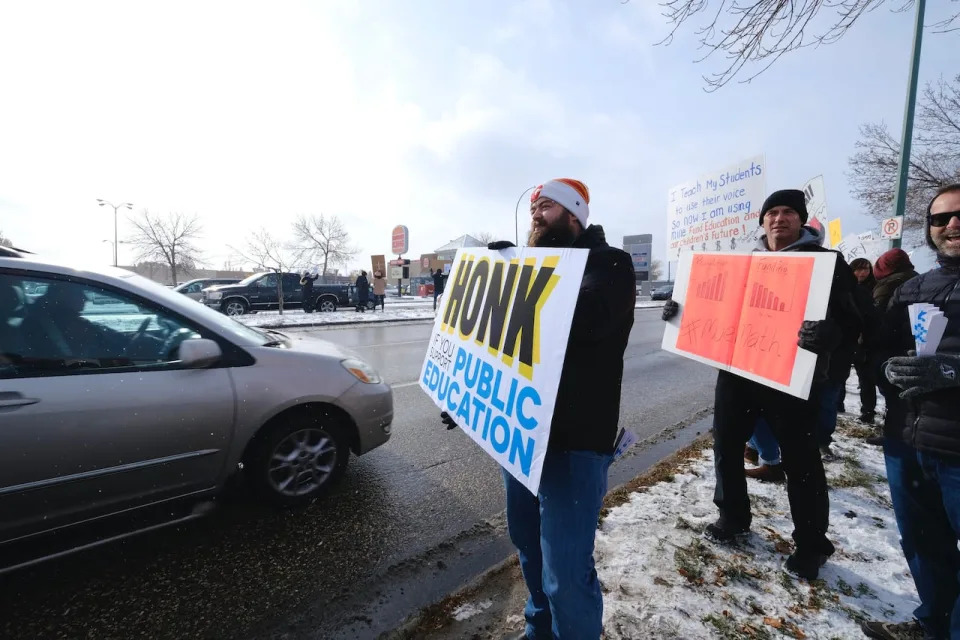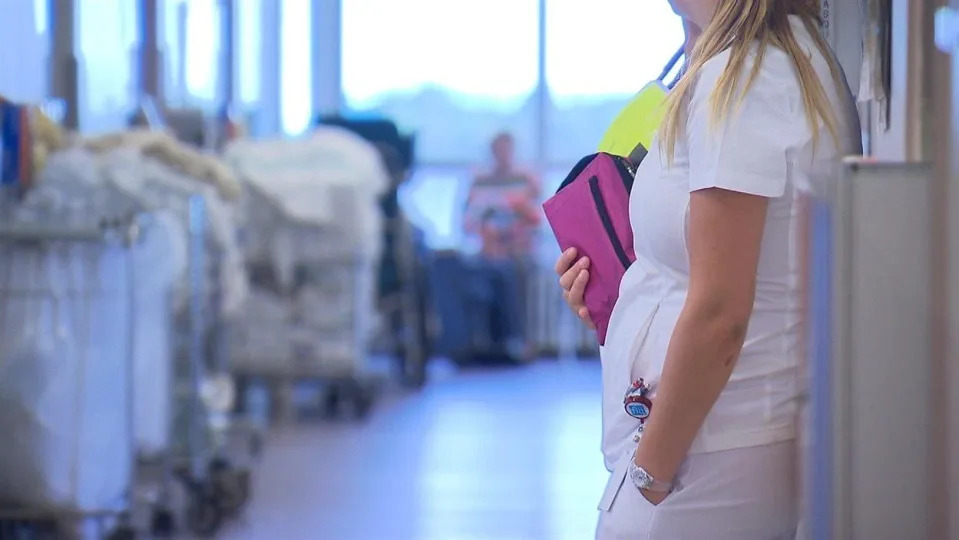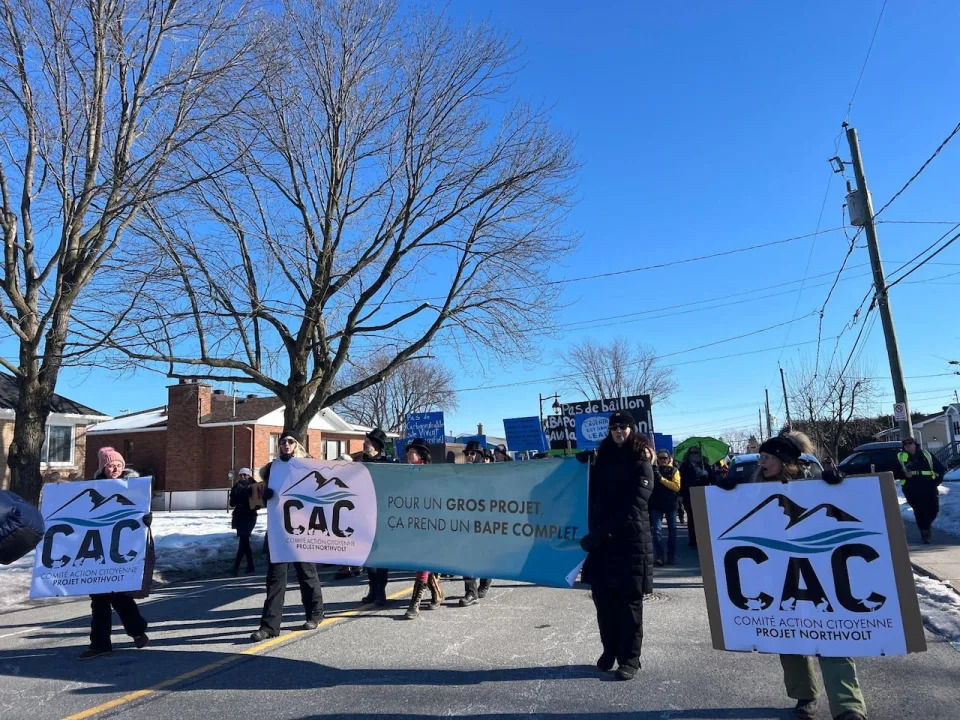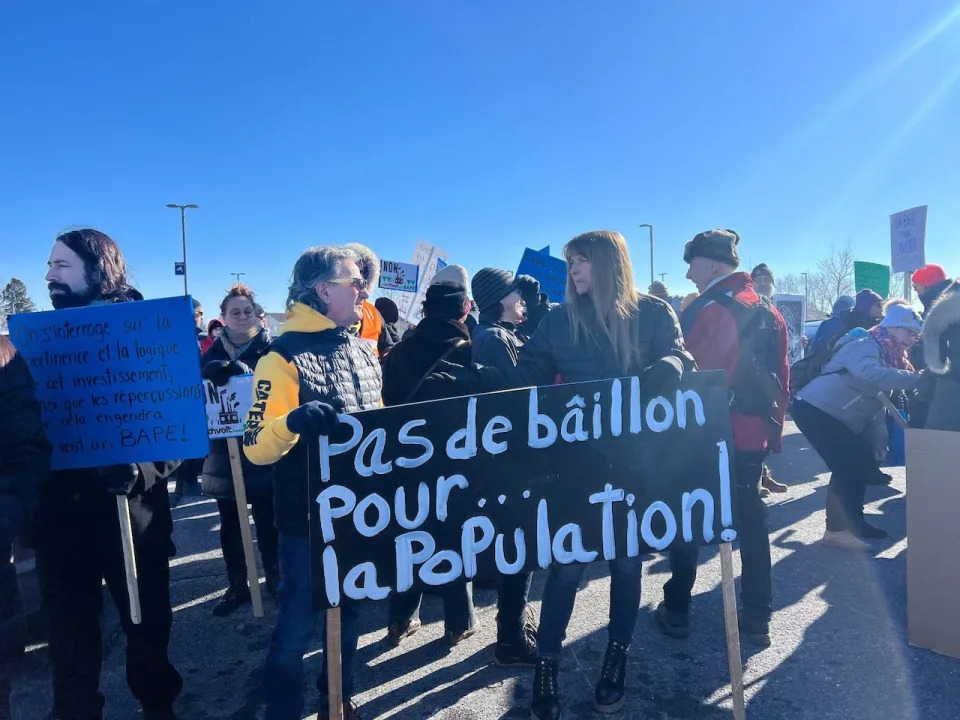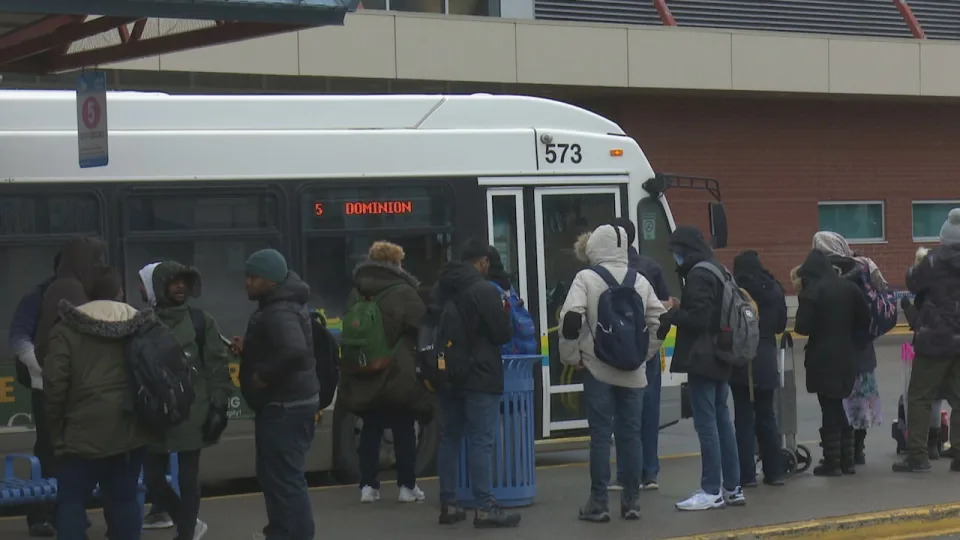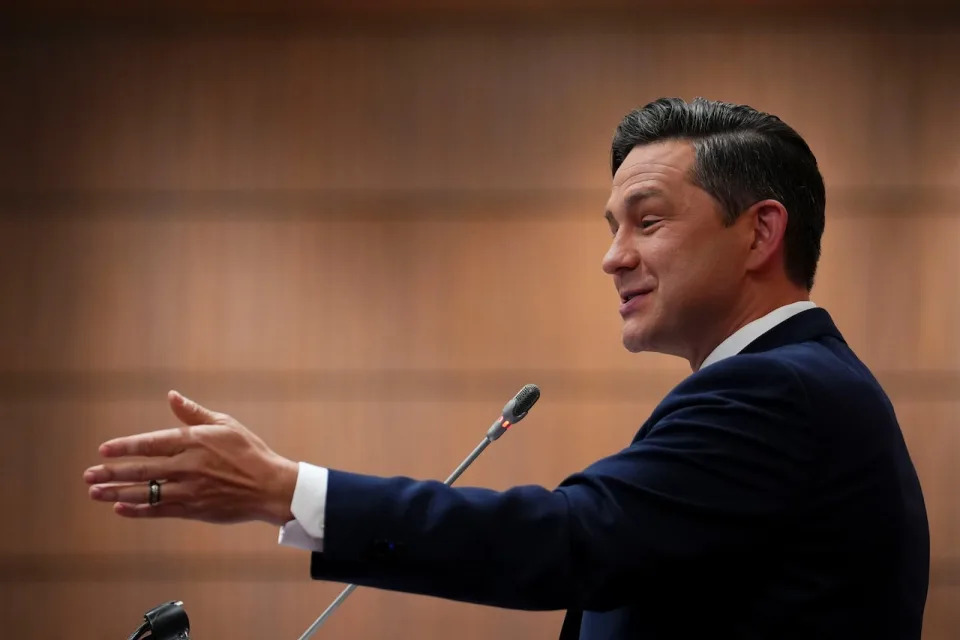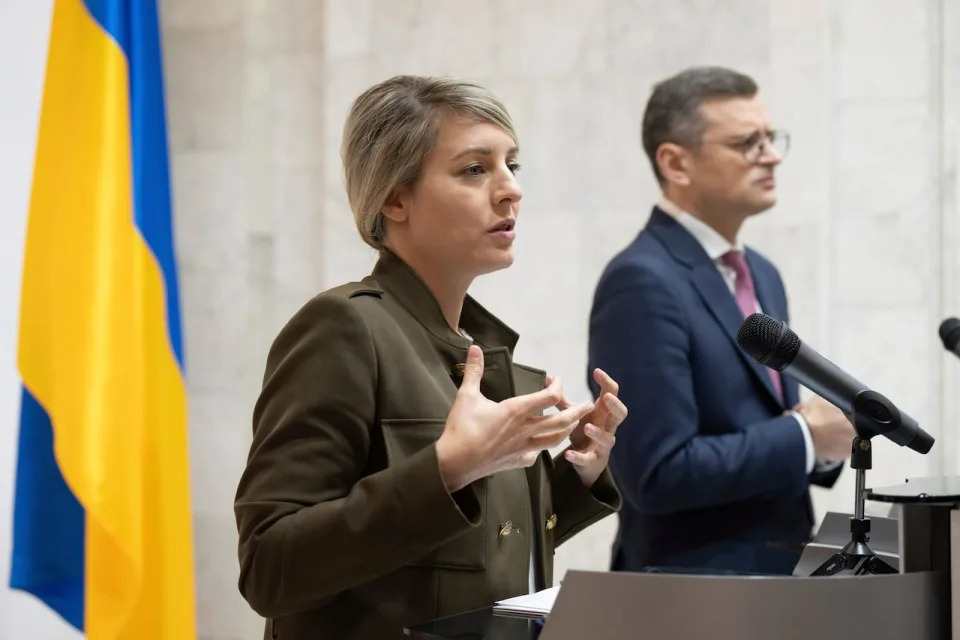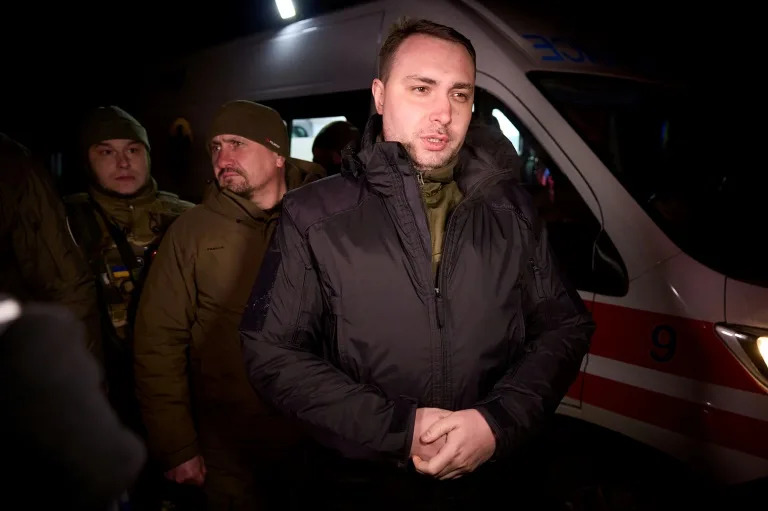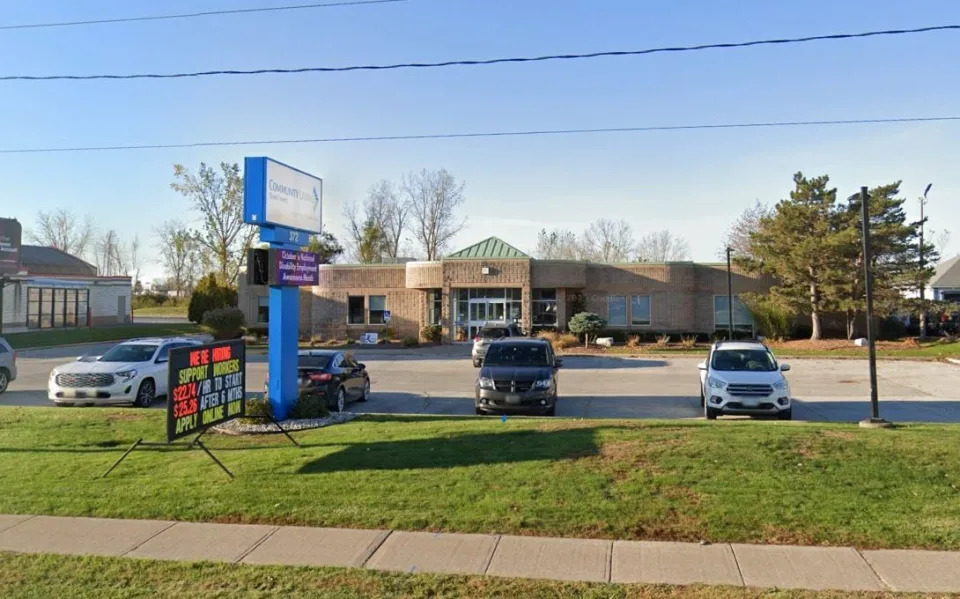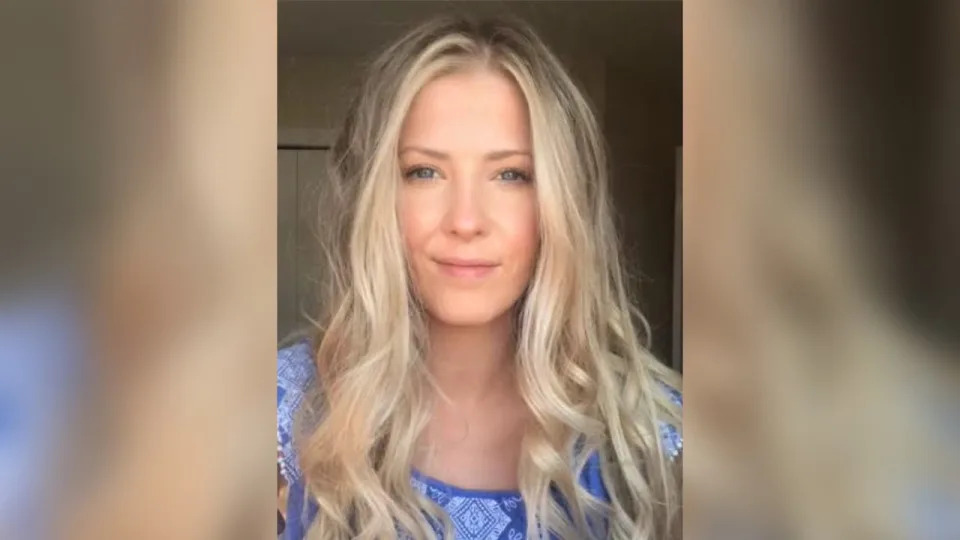CBC
Mon, February 5, 2024
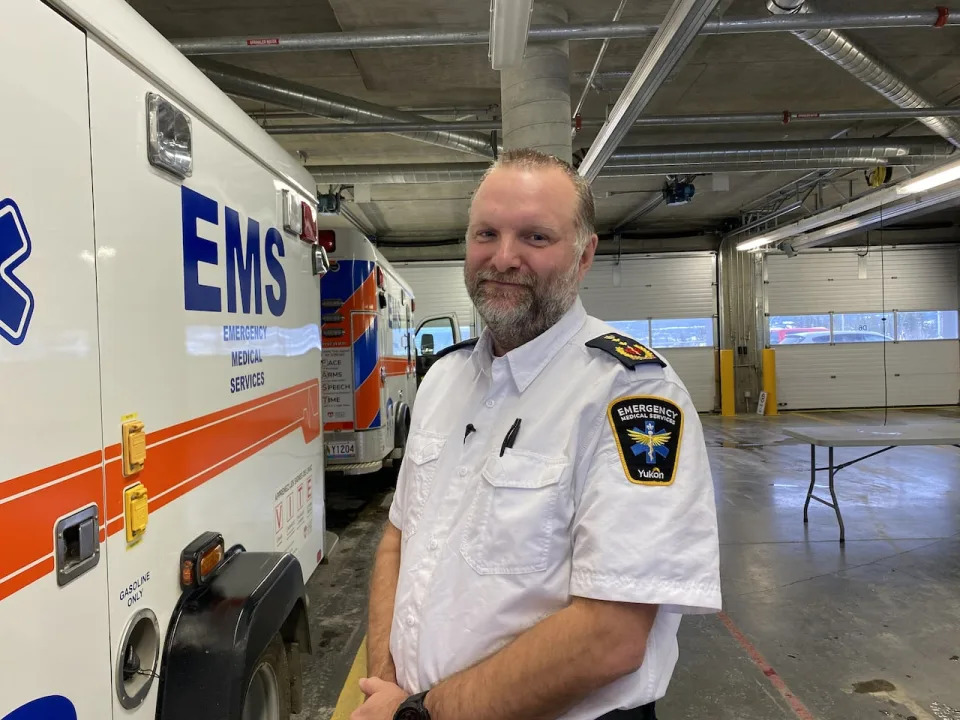
Ryan Soucy, the deputy chief of technical operations at Yukon Emergency Medical Services, stands in the ambulance bay at Yukon EMS headquarters in Whitehorse.
The Yukon Government is increasing the on-call honoraria for volunteer community responders.
As of Jan. 1, the department of Health and Social Services increased the on-call honoraria from $3.71 per hour, to $7.70 per hour.
"An increase was needed," said Yukon Emergency Medical Services' (EMS) acting chief Ryan Soucy. "We wanted to increase it to assist with recruitment and retention. As well as just to let them (volunteers) know that they're a valued member of the organization."
On top of the honoraria's increase, community responders also earn operational pay of up to $30.74 per hour for time spent in training or responding to EMS calls.
In rural communities, emergency medical services provided by staff paramedics are available on a Monday to Friday daytime schedule. But, if a medical emergency happens in the evening or on the weekend, the on-call volunteer paramedics are dispatched. In instances when an on-call paramedic isn't available, a paramedic from Whitehorse travels to the community by land or air.
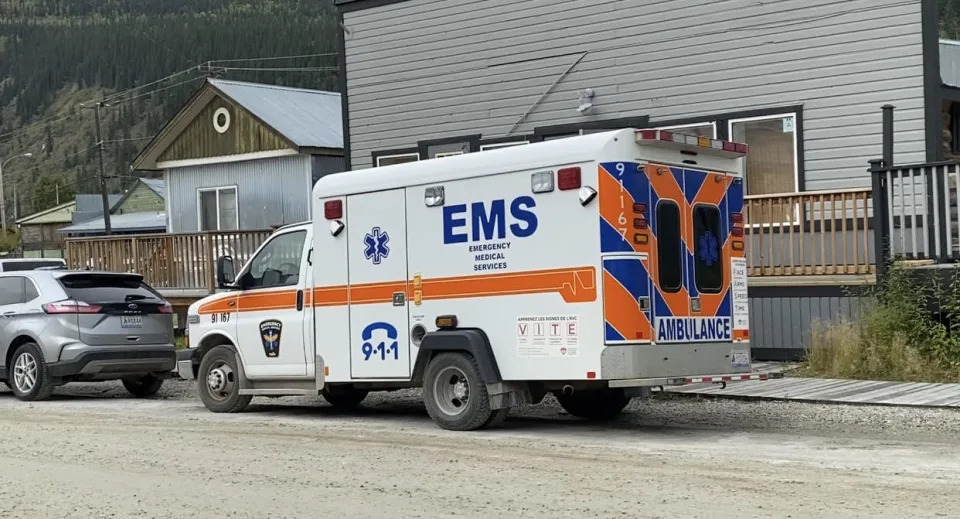
An ambulance parked on in Dawson City, Yukon. In fall, firefighters here said they were having to respond to medical calls, because paramedics weren't available. Dawson City, Yukon is has struggled to maintain a consistent level of emergency medical services. (Chris MacIntyre/CBC)
Soucy said it's still to early to see if this will attract more volunteers but said he's optimistic.
"Two of the communities that we've identified hoping this will help with recruitment in is Pelly Crossing, and potentially Teslin," Soucy told CBC News.
"We're actively recruiting in all of our communities but we're hoping that this will increase incentives to come out to volunteer."
Sense of fulfilment
The town of Watson Lake's Fire Chief Joey Cherpin told CBC News that he supports the increase, and the government's reasons behind it.
Cherpin said his department has responded to calls meant for emergency medical professionals when none were available. He said having more volunteers would free up his crew for fire emergencies.
"Often times it's with lift assists or heavier hands on calls where the two person staffing isn't going to be adequate anyway," he said. "We don't mind providing that support in those cases however when there's staffing issues and then we are fulfilling the services of EMS that's when there's an issue."
Cherpin said many of the first responders in town do so as their second job.
He said the increase will make it a bit more worthwhile.
"Having that honoraria bumped up, that's huge for somebody who can now have a bit of that passive income," he said. "Might get called out once or twice in a shift kind of thing but still have a bit of passive income and be comfortable but also get that sense of fulfilment from serving their community."
If Watson Lake, for example, sees one or two more volunteers join up as a result of the raise, that will be a big help, Cherpin said.
"A wise member of the EMS in Watson Lake told me that at the end of the day all you have to do is be nice to people, and take them to the hospital. And they're very successful at what they do."
'Significant improvement'
Dawson City, Yukon is another community that has struggled to maintain a consistent level of emergency medical services.
So much so that former Yukon EMS paramedic Mike Ellis decided to start the Dawson City Ambulance Association (DCAA), to advocate for consistent ambulance and emergency medical services in town. The group is made up of former EMS volunteers and medical professionals who want to fill in the gaps when there is no ambulance service or on call paramedics available.
He said his association is currently in discussions with Yukon EMS about how it can compliment the city's ambulance services after hours. The association is ready to start providing ambulance, and medical services as soon as they work out the kinks around how emergency calls would be dispatched to the DCAA.
In the meantime, Ellis said the pay increase is a proactive approach to entice potential community responders.
"It's a significant improvement," he said. "It would be nice to think that it may make a difference for some people as community responders because they may be able to make it a bigger part of their income."
Ellis told CBC News that Yukon EMS should also take compensation for the volunteers one step further.
"I think what would be really positive to see is if that increase in the honoraria came with similar representation for things like employment conditions ... [like the ones] that are applied when you're a unionized, employed member of staff," he said.
Union representation, he said, would help the responders if there are workplace issues.
"So to allow people to have that representation if there are problems. .. (like) the way that management deals with you, as a paid community responder, because that does feel different than being truly a volunteer."
Ellis echoed Cherpin's comments saying that any method to attract more volunteer first responders is a good thing.
He said that ensuring all Yukoners in Whitehorse and the surrounding communities have access to the health care they need will create for a stronger territory.
